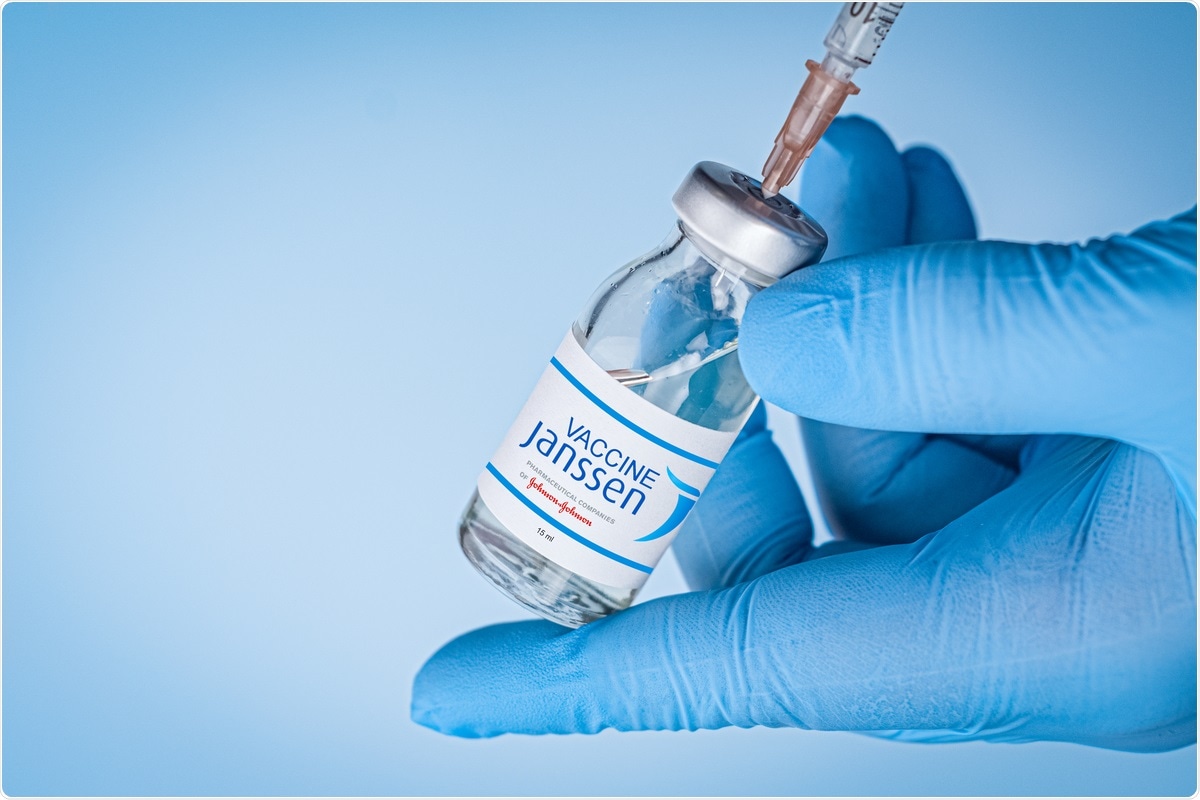Following the emergency authorization of the Ad26.COV2.S vaccine by the Food and Drug Administration, there have been more than 21 million doses administered to US citizens. The Ad26.COV2.S vaccine consists of a single-dose intramuscular injection comprised of recombinant, replication-incompetent, human adenovirus type 26 vector encoding the SARS-CoV-2 (severe acute respiratory syndrome coronavirus 2) spike protein. Continuous assessments of the safety and effectiveness of coronavirus disease 2019 (COVID-19) vaccines are essential, and especially now they are being administered more broadly.
 Study: Analysis of the Effectiveness of the Ad26.COV2.S Adenoviral Vector Vaccine for Preventing COVID-19. Image Credit: Seda Yalova/ Shutterstock
Study: Analysis of the Effectiveness of the Ad26.COV2.S Adenoviral Vector Vaccine for Preventing COVID-19. Image Credit: Seda Yalova/ Shutterstock
Previous research has utilized advancements in deep neural networks to execute high-throughput, machine-augmented curation of electronic health record (HER) systems. These advancements have allowed for rapid evaluations of real-world safety and effectiveness of the mRNA COVID-19 vaccines (BNT162b2 or Pfizer/BioNTech and mRNA-1723 or Moderna) and targeted investigation of the occurrence of cerebral venous sinus thrombosis in COVID-19 vaccinees.
In a study published in JAMA Network Open, a group of multi-national researchers has expanded on previous research to conduct a preliminary evaluation of the effectiveness of the Ad26.COV2.S vaccine via HER data.
The study
In the US, between February 27 and July 22, 2021, the SARS-CoV-2 pandemic entered a new phase characterized by stabilizing numbers of infections due to the intensive vaccination campaign. During this period, the Alpha variant was the most common initially but was replaced by the Delta variant in June and July.
Eight thousand eight hundred eighty-nine participants met the inclusion criteria in this study, and they were all administered the Ad26.SARS2.S vaccine across the Mayo Clinic Network. To examine the effectiveness of the Ad26.SARS2.S vaccine, the authors compiled a cohort of 88,898 individuals who were not vaccinated using 1:10 propensity score matching. Both the vaccinated and unvaccinated groups were then balanced according to age, sex, and race.
During the study, 60 (0.7%) of the vaccinated individuals tested positive for SARS-CoV-2 compared to 2236 (2.5%) of the unvaccinated. The incidence rates for positive tests in the vaccinated participants was 0.065 per 1000 person-days and 0.25 for the unvaccinated. The incidence rate ratio of SARS-CoV-2 infections in vaccinated vs. unvaccinated was 0.26, which indicates that the overall vaccine effectiveness is 73.6%, with a 3.73-fold reduction in infections.
It is anticipated that full vaccine effectiveness of the Ad26.SARS2.S vaccine is achieved following several weeks after administration. Therefore, the authors analyzed the number of new infections beginning fifteen days after enrolment into the study until the end of the study. In the vaccinated cohort, forty-one (0.5%) tested positive for the virus fifteen days or more after vaccination, compared to 1561 (1.8%) in the unvaccinated cohort, which is a 3.91-fold reduction.
These results corroborate the vaccine effectiveness of 74.2% in preventing infection at least two weeks following vaccination.
Infection with SARS-CoV-2 can occur post-vaccination if an individual is exposed to the virus before the body has built an immune response or if an inadequate immune response is elicited from the vaccine. The authors analyzed the time distribution between when the vaccine was given and the first positive test within the two cohorts to distinguish between the two scenarios. The median times between vaccination and positive test were similar for both cohorts, suggesting that the majority of infections that occurred in the vaccinated are likely not due to exposure to the virus before the individual could build an immune response.
To determine if the Ad26.COV2.S vaccine protects against severe COVID-19, the authors analyzed the number of hospitalizations, admissions to ICU, and deaths in sixty in sixty vaccinated individuals and 2236 unvaccinated individuals. The results from this analysis suggested an association between the Ad26.SARS2.S vaccine and a reduction in sever COVID-19. However, to achieve more precise estimates, more patients and events should be included in further analysis.
Implications
Various clinical trials have demonstrated the effectiveness of the multiple available SARS-CoV-2 vaccines, including the Ad26.SARS2.S vaccine. The analysis in this study did show a reduction in severe COVID-19 associated with the Ad26.SARS2.S vaccine, especially with hospitalizations.
However, with such a small sample size utilized for the analysis, the study was underpowered for a definitive assessment of mortality. As more and more individuals receive the vaccine, more data will be available to analyze hospitalizations, admissions to ICU, and deaths in patients who become infected with SARS-CoV-2 after Ad26.SARS2.S vaccination